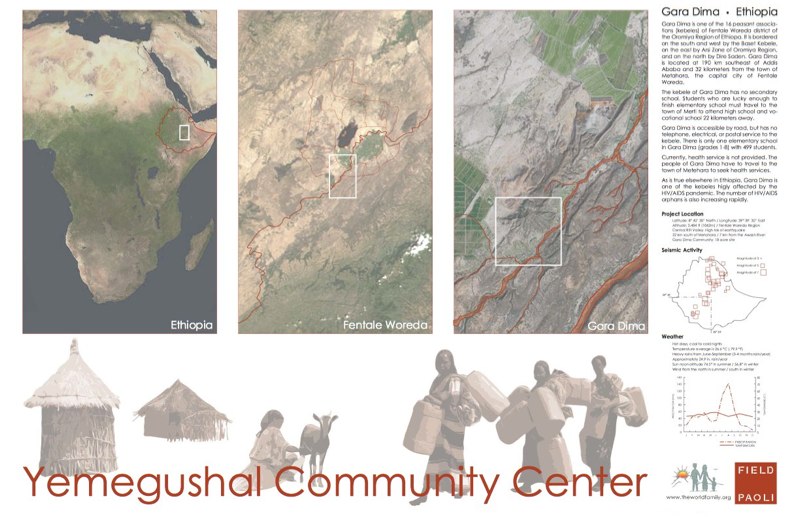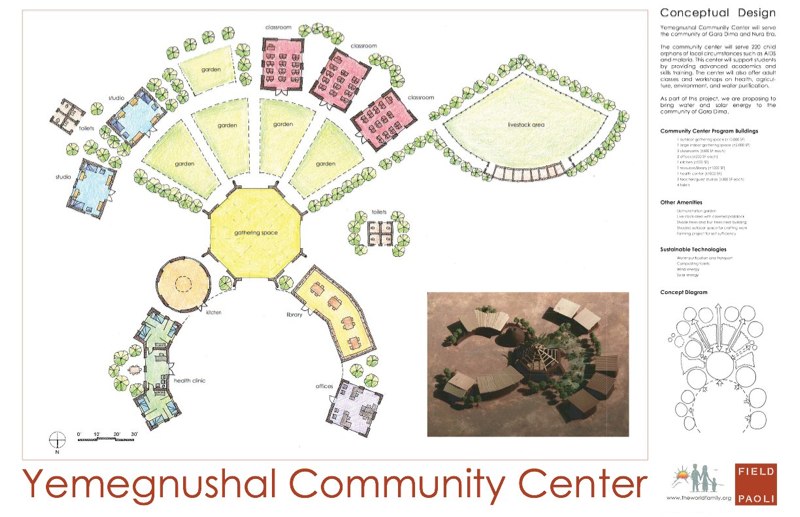



The Yemegnushal Community Center was designed in 2007 for The World Family orphans’ pilot program in Gara Dima, Ethiopia. The Center was designed using locally sourced materials and earthbag construction technology. The center offers a subsistence community centralized services that include healthcare and nutrition, vocational and skills training, farming and livestock development, environmental awareness, and educational opportunities. The Center is sited on an 18-acre plateau and is currently under construction. The site development will include an irrigation system for farming, well drilling, drinking water purification, and a solar energy system.
Jaiya Alamia was the project architect for this sustainable community project. She lead the team in design charrettes and introduced the team and client to earth bag construction technology. After completing the design, Jaiya was instrumental in securing funding for the project by presenting the design at a fundraising gala in San Francisco.
In the fact finding mission for this project, we found that the people of Gara Dima had been living with contaminated water, malaria, HIV/AIDS, and other numerous preventable diseases. The community received inadequate health services, low academic enrollment rates, deforestation, soil erosion, and the impact of perennial drought. The World Family determined that the community was highly under-served, in addition to lacking electricity, telephone, or postal services.
The Yemegnushal Community Center is a pilot program, envisioned by The World Family, based on self-sufficiency with an emphasis on community services and life skills training to build positive, productive and sustainable livelihoods. The Center is a critical component to embracing the larger issues of community development. It is the World Family’s belief that any attempt to address a single need in isolation is destined to be weakened by the forces of other needs. The holistic approach to providing for the community of Gara Dima, will enable community members and children to participate in programs where they can develop valuable life-skills that promote economic self-sufficiency and confront malnutrition and other health and social problems.
